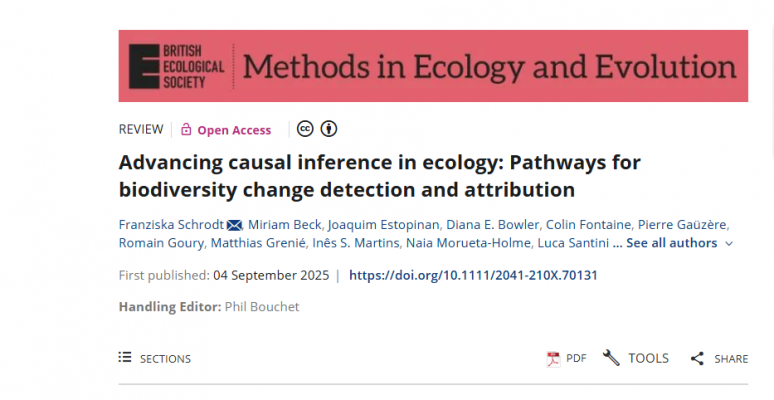
Detection, attribution and causal inference: New OBSGESSION article
Efforts to understand why biodiversity is shifting across ecosystems are intensifying, with scientists highlighting both the progress and persistent challenges in linking environmental changes to their underlying causes.
A new publication in the context of OBSGESSION titled “Advancing causal inference in ecology: Pathways for biodiversity change detection and attribution” identifies the challenges and decisions involved in detecting and attributing biodiversity change. The article, published in the "Methods of Ecology and Evolution" journal, provides an overview of suitable methods based on available data and specific research questions.
They focus on various challenges inherent in ecological data, such as sampling biases and interacting drivers, as well as difficulties in causal attribution and accurately detecting directional change in the systems of interest. The research team suggests solutions, including data structuring, a comprehensive overview of approaches for dealing with sample variability, and recent methodological frameworks that offer clear roadmaps and step-by-step guides.
Interdisciplinary collaboration for methodological refinement and adaptation is essential for ecosystemic research. Drawing experience from other fields in combination with robust data collection and exchanging know-how practices will lead to improvement of the link between data-driven and theory-driven approaches.
Read the article here:
https://besjournals.onlinelibrary.wiley.com/doi/10.1111/2041-210X.70131